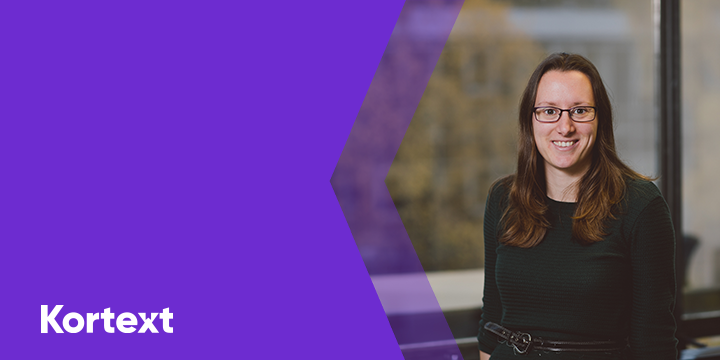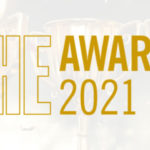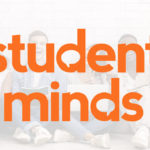Within the higher education sector, we hear a lot about students, and rightly so, but nowhere near enough about the people who provide them support in many different shapes and sizes – their university librarians.
To prove there’s more to librarians than hushing and clichés, we’ll be speaking with a different librarian each month to find out more about them, their role at their institution, and most importantly, the weirdest thing found in a returned book!
This month, we’re catching up with University of Essex’s Content Delivery Librarian, Hannah Groom, to find out what her favourite song is, as well as the role the library plays at University of Essex.
After studying a BSc in Discrete Maths, Hannah found her way into the university library. Read on to find out how.
If you’re now wondering what discrete maths is, I won’t lie, I was curious too. Hannah said discrete maths is: “essentially…a joint degree between maths and science – everyone likes to joke it’s secretive maths!”
With maths and librarianship not being the closest topics, I couldn’t help but wonder how Hannah found herself as a key member of her university’s library.
“When I was 16, I had a job in a public library as a Saturday assistant. It was a lovely job as previously I had worked as a cleaner in a nursing home. Working in a library was a big change but I really enjoyed it. It was really nice, and I just enjoyed working with the public and providing access to the resources.
“After university, I got a job in finance and hated it. I was trying to decide what to do. My mum said: ‘you really enjoyed your job as library assistant’, so I started looking at the profession, got a graduate traineeship at University of Essex… which I did in under a year and knew it was what I wanted to do.”
“I went on to do my MA in Library and Information Studies at UCL.”
And the rest, as they say, is history.
As a university librarian who experienced life as a public librarian first, Hannah described the differences between the sectors.
“They differ in a lot of ways in the services you’re able to offer – they’re similar in the sense that you’re there to support your users in accessing information, resources and supporting them in their life. Of course, in public it’s wider life, and at university it’s their university life.
“The process is still the same – a lot of the things you’re trying to achieve are very similar.”
“I chose the profession because it’s so varied. Our student population comes from across the world. We’re all here, in one place, in a small part of Essex. It makes your job more interesting.”
In response to this, I asked Hannah about her favourite elements of the job, to which she said:
“Right now, it’s talking with the suppliers and aggregators because I find it interesting talking with people outside of the sector about how we can work together to create new things or do something that’s a bit different, or make something work better for us, but also work better for them as well.”
The role of the library
With insight into higher education, it’s easy to say that the role of university libraries differs from institution to institution, so what is the role of the library at University of Essex?
“Well, strategically, the library is here to support teaching excellence and research excellence – University of Essex is very much about this.
“For us, it’s not just about providing access to the resources; we support our users in not only accessing those resources, but providing information literacy sessions on how they might use those resources, how they need to reference those resources, what sort of things they need to do to make sure they’re finding good quality resources and critically reviewing them.”
“We are also a space where students come to study. Lots of people have particular emotions about coming into the library – our role is very much about the support for our students, whether that’s their wellbeing or supporting them in their learning. We recognise the role we have to play.”
Supporting the next generation of difference makers is at the core of what we do at Kortext. To understand how we can best support University of Essex in their mission of providing access to resources, we asked what elements of Kortext are most beneficial to supporting access.
Hannah said: “Accessibility features.”
“Accessibility is always going to be such an important aspect of what we do – making sure our resources are not only just accessible to people, but actually usable.
“I don’t have any impairments, so I technically can read the book on the screen, but having those features also enable me to not get headaches or being able to put on night vision is useful to everybody.
“Something I would like to see from all digital content providers is continuing the drive to improve the accessibility and the usability of their resources, because that’s the main barrier to people using them.
“The main thing we hear from people is ‘I prefer print’ – when actually… it’s not because they prefer print, it is because they find it difficult to read eBooks online.”
One of Kortext’s main priority is to be inclusive for all. Therefore, our accessibility features let you adjust your reading experience in any way that fits your needs.
You can customise font size, style, and background colour, and you even have the option to listen to your chosen books with our Read Aloud feature.
Nearing the end of our interview, we had a quick-fire round. Are you ready for this?
What’s your favourite book?
“I do quite like fantasy stuff – I’m a big Robin Hobb fan – I like her trilogies. They’re really cool! I’m also in audiobook listener; I do very much enjoy the Sherlock Holmes series that’s read by Stephen Fry.”
If you could send out a universal message to students about their time at university, what would it be?
“Oh, so I suppose there’s sort of two aspects to this. From a personal perspective, just to try and enjoy your time with your friends and enjoy a time where you don’t have that much responsibility… You’re never going to get that sort of experience again, where you can meet lots of different people and get to know them.
“I guess, from a professional point of view, just make sure you ask for the support that you need.
“If things are annoying you or wrong, just say and give your feedback. We often give feedback or ask for feedback from students, but like so many people, I just think they say these things and I was like: ‘Why didn’t you ask for help before? We could have helped you with that, and we could have made things better!’
“You pay enough money to get the support that is there – make sure you ask for it!”
If you had a magic wand, what would your library-based wish be?
“I wish that Digital Rights Management would be removed. If I could get rid of DRM, it would solve a lot of problems.
“It creates a terrible experience for users and it’s just really irritating!”
Lastly, we all know the library is supposed to be a quiet place, but we had to find out what Hannah’s favourite song is (which is a plot twist because she has two).
“Either be Somewhere Only We Know by Keane or Dog Days Are Over by Florence and The Machine.”
Very solid choices from Hannah, rounding off an excellent and insightful interview. If you enjoyed meeting this librarian, click here to meet the others!
If you’re a librarian yourself and you’d like to share your journey, do get in touch!







